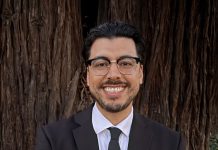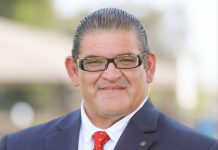WATSONVILLE—The city of Watsonville will likely ask its residents to approve a half-cent sales tax increase in the November election that would raise the city’s sales tax to 9.75%—the most the municipality is allowed to tax its residents.
The Watsonville City Council did not place the item on the ballot—yet. The elected leaders at Tuesday’s meeting only heard a report from Parks and Community Services Department Director Nick Calubaquib and consultant Jared Boigon, of TBWBH Props & Measures, about the results of a survey conducted in February.
That study of 486 likely Watsonville voters found that while there is support for a special tax measure that would solely benefit the Parks Department, a general sales tax hike, which only requires a simple majority, is more likely to receive voter approval.
Some 68% of respondents voiced support for a general sales tax measure that would bring in more money to the city’s general fund—the municipality’s most flexible pool of revenue that can be used for most expenses.
Support for a special tax that would only benefit the Parks Department came in at 72.5%, with more than 40% of respondents saying they would “definitely” support the item. A special tax—or a tax that comes with spending restrictions like Watsonville’s Measure Y—requires the OK from two-thirds of voters.
But support for both a general and special tax fell by several points when the consultant team introduced arguments against them such as escalating inflation.
“Looking at these numbers, it does cause us to think that the two-third threshold is pretty challenging for a measure like this at this time,” Boigon said. “But, again, if you focus on the simple majority for general fund revenue, you’re very comfortably above the 50%-plus-one-threshold … finding a way to put a viable measure on the ballot I think is important.”
The council will weigh whether it will place the item on the Nov. 8 election at a future meeting.
The survey was conducted to gauge the community’s interest in providing more money to Watsonville’s Parks Department. Along with having a dearth of park space within city limits, the department also has more than $20 million in deferred maintenance costs at its current 148 acres of park space.
Calubaquib said that the need for investment into the city’s parks and recreation programs has been a recurring ask from community members through many citywide initiatives and outreach efforts.
“But I think what we all know intuitively, along with the data that we have from many community surveys, is that there is a lot of other priorities that our community has,” Calubaquib said. “Everything from road safety and conditions to housing to prevention programs and general infrastructure in our facilities as well.”











